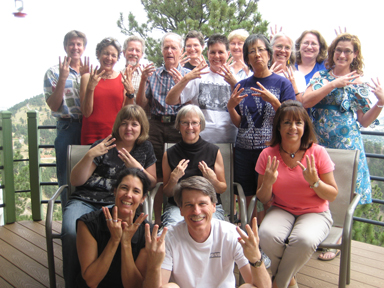I belong to 2 1/2 critique groups. I know–crazy, but not really. Group #1 is an in-person group that meets once a month. I’ve been in that group for over 10 years. This is the group that helps shape my novels. Group #2 is an online group that looks at my picture book manuscripts. And #3 is my work-in-progress group, which meets every one to three months. This is where we can share pages from what we’re working on, ask for feedback or help in brainstorming a character or plot point.
Each of my groups has a specific purpose and I love them for different reasons. If you are thinking about joining a critique group, there are lots of resources online you can check out (If you’re thinking about starting your own, focus on resources for that, which has it’s own set of things to consider).
But here are my top 6 things to think about when it comes to critique groups.
- Be honest about what you canhandle. Really look at yourself and ask yourself if you are ready for honest feedback. If someone points out something that’s not working, can you listen to it without being defensive? Or are you too emotionally tied up in your work that you aren’t ready for objective viewpoints? Remember that as the writer you have the final say in what you accept or reject in the way of feedback, so keep that in mind as you decide whether you are at a place to receive comments.
- Don’t be afraid to try out a group, then leave if it doesn’t feel right. I did this. Years ago I was invited to check out a group and freaked out, feeling I wasn’t ready for that level of feedback. I didn’t go a second time. A few years later, I was invited by someone else to their critique group. It turned out, it was the same group that had freaked me out a few years earlier! But I had grown as a writer and this time I was ready. I’ve been a member ever since. Just be clear at the outset that you are in “try before you by” mode. Everyone should understand and respect that and also should want the group to gel and be a good fit. Also, you want to see what kind of feedback is offered and how it is delivered to make sure it works for you. Finally, they may be trying you out as well and you need to be open to that.
- Don’t assume that because no one in the group is published, that they can’t provide valuable feedback. When I joined my online group, I think only one or two had been published (and it wasn’t me) and only one had a book published. But we were avid readers of children’s literature, had begun learning to read as a writer (separate blog post about that coming up in December), and read craft books and attended classes and workshops to better understand how a picture book and story was put together. Sure we had some false starts and in the beginning our feedback may not have been as helpful, but we learned quickly and I for one know my manuscripts improved.
- Hone your own feedback skills. You aren’t there just there to get feedback, but also to give it. This is a learned skill that gets better the more you do the things I mentioned in #3 above. It took me several months in Group #1 before I felt like I had anything of value to offer. Prior to that, I listened carefully to what others said about a manuscript and formed my own opinions about whether I agreed with it or not and why (or why not). Being able to justify your feedback is vital to helping a writer use it effectively.
There are many other considerations as well – frequency of meetings, in-person or online, critiquing pages or whole manuscripts, reading on the spot versus sending manuscripts in advance, and more. But these four are some top level things to get you thinking.
Good luck!




